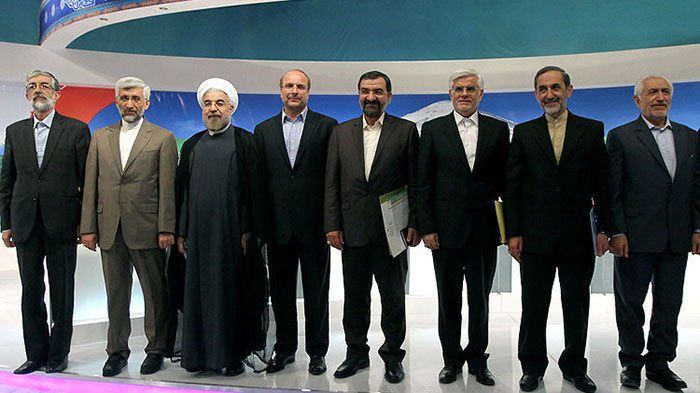Rouhani’s Rivals Will Adopt a ’Pack Hunting’ Strategy to Foil His Reelection, Says Veteran Reformist

Since Donald Trump’s election as US president, a major line of thought in Iran has been its impact on Washington’s relations with Tehran and the implementation of the nuclear deal. Inside Iran, many Principlist figures have welcomed Trump’s upset victory, proclaiming that it would benefit Iran. Others are however worried that his impulsive decisions might endanger the Joint Comprehensive Plan of Action reached between Iran and world powers, rewinding Iran to the sanctions era.
Mohammad Javad Haghshenas, a senior member of the Reformist Supreme Policy-making Council, has expressed his view on the jubilant reaction by some Iranian hardliner Principlists to Trump’s victory in the US presidential election. In an interview with Mardomane, a self-proclaimed neo-Reformist website, Haghshenas said that the Principlists could not hide glee over Trump’s election, even though they kept questioning the Reformist camp for being disappointed over Hillary Clinton’s defeat.
Speaking on the paradoxical Principlist position on Donald Trump, Haghshenas attributed it to potential opportunities created by residence of a man in the White House with radical right inclinations. Trump “may demonstrate behaviors that ultimately provoke reactions inside America or by its allies, paving the ground for increased hostility between Iran and the US. It is in an atmosphere of hostility that this group [hardliner Principlists] could justify and strengthen their position in centers of power,” Mardomaneh quoted him as saying.
The prominent Reformist says the Principlists’ ecstasy with Trump’s victory indicates that they hope to repeat the rise of a faction like that of Ahmadinejad’s to power as a natural response to the election of the senseless radical right in the US. Answering a question on whether the US presidential poll could affect Iran’s upcoming presidential election, he said he did not imagine that Iran was ready for another big mistake.
Pointing to the fact that the Iranian establishment’s leaders have made it clear that an Ahmadinejad comeback is not welcome, Haghshenas said a rebranding of Ahmadinejad is not an appropriate response for the country, which needs “prudence, peace and vigilance” at the current circumstances. The situation in the United States, he noted, calls for “more caution in words and caution on our part”.
Reflecting on recent remarks by ex-Deputy Parliament Speaker Mohammadreza Bahonar who excluded Tehran Mayor Qalibaf from his earlier decree that those who once ran and were defeated should not run for office again, Haghshenas called Mohammad-Bagher Qalibaf’s candidacy unlikely. “I do not think the Principlist camp would want to step in the race with a single candidate because Rouhani has a greater chance against a candidate like Qalibaf,” he said.
Haghshenas went on to say that he believed the Principlists will, against all odds, step forward with 5 to 7 candidates, all from among its prominent figures. “From the next month, we will see active participation from these figures who will try to make a bold cause against President Rouhani, having an all-against-one race” he said.
In the race, Haghshenas explained, each individual candidate could express his or her own political, economic, cultural, foreign, or domestic policy views. The strategy would aim to minimize Rouhani’s chances for victory in the first round and take the election to a runoff, Haghshenas added.
He implicitly calls the Principlists’ bid for solidarity pretentious, saying their roadmap is the plurality of candidates. Through this ‘pack hunting strategy’, Haghshenas said, the Principlist camp will eventually gather behind a single candidate in the runoff, doing their utmost to prevent Rouhani’s reelection.

